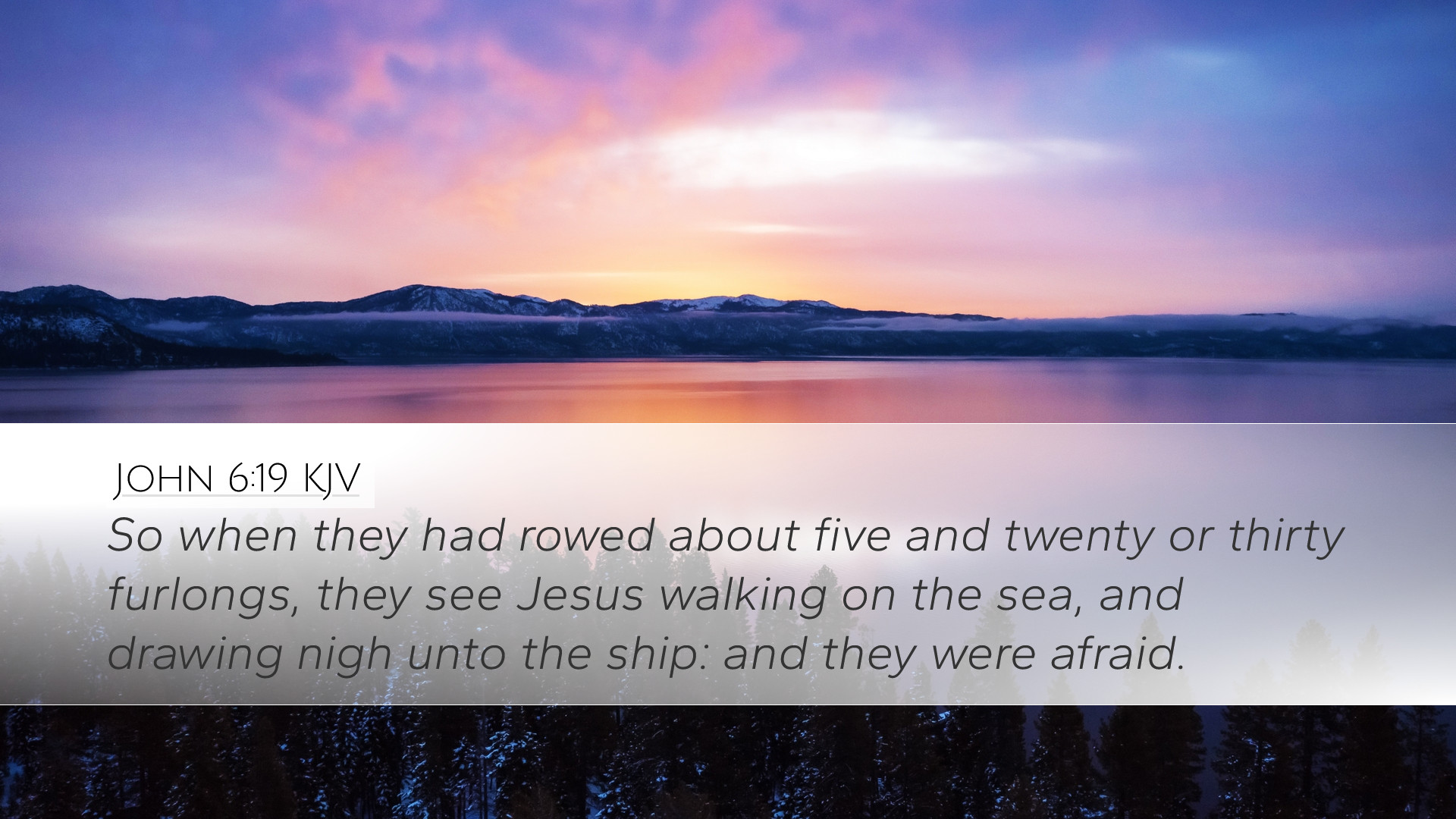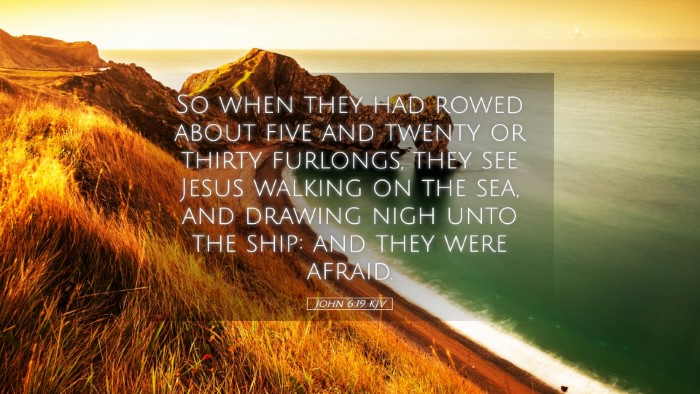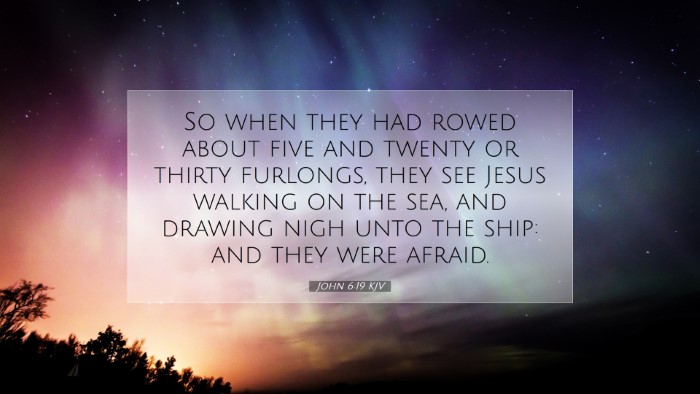Commentary on John 6:19
John 6:19 states: "So when they had rowed about three or four miles, they saw Jesus walking on the sea and drawing near the boat; and they were afraid." This passage is rich in theological significance and contains valuable lessons for Christian living. In this commentary, we draw insights from esteemed public domain commentators like Matthew Henry, Albert Barnes, and Adam Clarke.
Contextual Background
This incident occurs after the miraculous feeding of the 5,000, an event that had a profound impact on both the disciples and the multitudes. The disciples found themselves in a precarious situation on the Sea of Galilee, emphasizing the themes of faith, divine intervention, and the persistence of fear amidst miraculous occurrences.
Insights from Matthew Henry
Matthew Henry remarks on the disciples' journey across the sea, noting the physical difficulty they encountered. He describes their rowing against a contrary breeze, which highlights the challenges that accompany discipleship. Henry draws a parallel to the spiritual struggles believers face, portraying the ocean as a metaphor for life’s trials.
- Human Effort: The disciples' rowing exemplifies human effort in the face of adversity.
- Divine Presence: Henry emphasizes that even in struggles, Jesus is near—He walks on the very waters that threaten us.
- Fear and Faith: The fear exhibited by the disciples reflects a common human reaction to the unknown; yet, it is in these moments that faith can be most profoundly tested.
Insights from Albert Barnes
Albert Barnes provides a detailed analysis of the miracle of Jesus walking on water. He points out that the event showcases the authority of Christ over nature, illustrating a pivotal moment where the divine intervention reassures the fearful disciples.
- Symbol of Power: Barnes notes that Christ's act of walking on the sea is a demonstration of His sovereignty and Lordship over creation.
- Encouragement to Believers: The passage serves as encouragement to believers, assuring them that Christ is with them in life's storms.
- Disciples' Response: The initial fear of the disciples indicates a lack of understanding of Jesus' true nature; they struggle to reconcile their perceptions with the reality of who He is.
Insights from Adam Clarke
Adam Clarke offers a devotional perspective on this scripture, emphasizing the personal applications for the Christian believer. He reflects on how this experience can mirror a believer’s walk with Christ amidst adversity.
- Application of Fear: Clarke discusses the nature of fear and how it can often obscure faith, recognizing that fear is prevalent even among devoted followers of Christ.
- Christ’s Approach: He observes how Jesus draws near in moments of crisis, illustrating the tender care and compassion of the Savior.
- Encouraging Assurance: The narrative encourages believers to recognize that Jesus walks with them through their trials, dispelling fear with His presence.
Theological Themes
The passage of John 6:19 invites reflection on several important theological themes:
- Christ’s Authority: The imagery of walking on the sea serves as a powerful affirmation of Jesus’ authority over creation, leading to a deeper understanding of His divine nature.
- The Nature of Discipleship: The disciples' struggle reveals the reality of Christian discipleship, where the journey often entails physical and spiritual challenges.
- Faith in Adversity: The account encourages believers to look to Jesus in times of fear, highlighting the need for faith and trust in Christ regardless of circumstances.
Conclusion
John 6:19 is not merely a narrative of Jesus’ miraculous power, but a rich tapestry of faith, fear, and divine presence amidst life’s turbulence. The insights derived from the commentaries of Matthew Henry, Albert Barnes, and Adam Clarke weave together a compelling understanding that speaks to the heart of every believer. In their struggles, Christians can take solace in the reality that Jesus is not distant, but walks alongside them, ready to comfort and empower.


